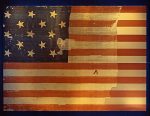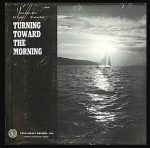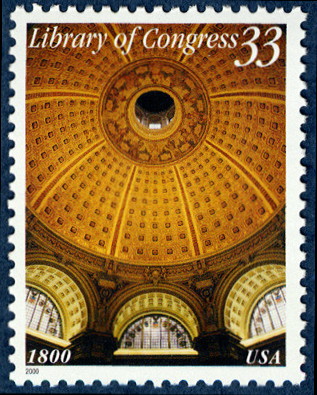![[Samuel Barber Stamp 1997]](https://riverhouses.org/wp-content/uploads/2023/03/barber-stamp-1997-300x237.jpg) Today is the birthday of the great American composer Samuel Barber (1910–1981). Why not use the occasion to introduce your students to one of the most beautiful pieces of classical music ever written by an American: Barber’s Adagio for Strings, composed in 1936 when Barber was just 26 years old. It will only take nine minutes and it will give them a new treasure for life.
Today is the birthday of the great American composer Samuel Barber (1910–1981). Why not use the occasion to introduce your students to one of the most beautiful pieces of classical music ever written by an American: Barber’s Adagio for Strings, composed in 1936 when Barber was just 26 years old. It will only take nine minutes and it will give them a new treasure for life.
Barber’s Adagio is often described as sorrowful or as cathartic — producing a release of emotions. Here’s a beautiful live performance by the Detroit Symphony Orchestra under the direction of American conductor Leonard Slatkin. Listen to it with your students in a quiet place without distractions. Turn the volume up, and open it to full screen so you can see the individual musicians in the orchestra as they play each section. (If you can make it all the way through without goosebumps, you’re a rare breed.)
Barber’s Adagio is often played at public memorial services around the world today. One notable performance, also conducted by Slatkin, took place at the BBC Proms on 15 September 2001, just four days after the 9/11 terrorist attacks on the United States. The Proms, ordinarily a boisterous British music festival, was given over on that occasion to commemoration and remembrance.
More than thirty years after he completed the Adagio for Strings, Barber revisited the work and produced a new arrangement entirely for voices, using a text from the Latin Mass known as the Agnus Dei: “Agnus Dei, qui tollis peccata mundi, miserere nobis. Agnus Dei, qui tollis peccata mundi, dona nobis pacem.” (“Lamb of God, who takest away the sins of the world, have mercy on us. Lamb of God, who takest away the sins of the world, grant us peace.”)
Here is a magnificent and beautifully filmed performance of Barber’s Agnus Dei by the Belgian Vlaams Radio Koor under the direction of Marcus Creed. The version above was all strings and no voices; this arrangement is all voices and no strings. As before, listen with your students in a quiet place, and open to full screen so they can see the individual singers as their parts move back and forth through the performance.
Devote a few minutes to Samuel Barber in your homeschool during this his birthday week, and invite your students to learn more about this important American composer.
What marvelous musical discoveries will you and your students be making in your homeschool this Leo Term? 😊
❡ Lift every voice: This is one of our occasional posts on Homeschool Arts & Music. Add your name to our weekly mailing list and get great homeschool teaching ideas delivered right to your mailbox all through the year. 📫
❡ Homeschool calendars: We have a whole collection of free, printable, educational homeschool calendars and planners available on our main River Houses calendar page. They will help you create a light and easy structure for your homeschool year. Give them a try today! 🗓
❡ Support our work: If you enjoy our educational materials, please support us by starting your regular Amazon shopping from our very own homeschool teaching supplies page. When you click through from our page, any purchase you make earns us a small commission at no extra cost to you. Thank you for helping us to keep going and growing! 🛒
❡ Join us! The aim of the River Houses project is to create a network of friendly local homeschool support groups — local chapters that we call “Houses.” Our first at-large chapter, Headwaters House, is now forming and is open to homeschoolers everywhere. Find out how to become one of our founding members on the Headwaters House membership page. 🏡




